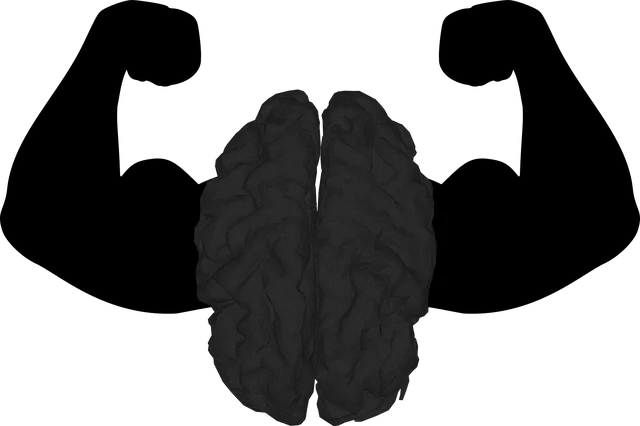Aurora Kaiser Permanente's mental health department emphasizes Emotional Intelligence (EI) as a powerful tool for personal growth and well-being, focusing on self-awareness, open dialogue, active listening, effective communication, and self-care. By cultivating EI, individuals can develop healthier coping strategies, improve relationships, and navigate life's challenges better. The department prioritizes building emotional intelligence in healthcare professionals through social awareness, empathy, active listening, cultural sensitivity training, and risk assessment tools. Effective communication techniques enhance mental wellness, foster deeper connections, and enable compassionate care tailored to diverse patient needs. Integrating EI into daily life transforms decision-making, relationship dynamics, and stress management, leading to a more balanced and fulfilling life.
Emotional intelligence (EQ) is a powerful tool for personal growth and success, as recognized by the Aurora Kaiser Permanente mental health department. Understanding and cultivating EQ can lead to improved relationships, enhanced decision-making, and better overall well-being. This article explores the key components of emotional intelligence, providing insights into self-awareness, social awareness, empathy, and effective communication strategies. By integrating these principles into daily life, individuals can embark on a journey towards personal transformation and unlock their full potential.
- Understanding Emotional Intelligence: Unlocking Its Potential
- The Role of Self-Awareness in Building Emotional Intelligence
- Enhancing Social Awareness and Empathy
- Practical Strategies for Effective Communication
- Integrating EQ into Daily Life: A Journey Towards Personal Growth
Understanding Emotional Intelligence: Unlocking Its Potential

Emotional intelligence (EI) is a powerful tool for personal growth and well-being, and it’s one that Aurora Kaiser Permanente’s mental health department emphasizes as a key component in their patient care. EI involves recognizing and managing your own emotions, as well as understanding and empathizing with others’ emotional states. By cultivating emotional intelligence, individuals can unlock significant potential in various aspects of life.
This process begins with self-awareness—a profound understanding of one’s emotions, triggers, and patterns. It encourages the adoption of positive thinking strategies, where individuals challenge negative thought patterns and cultivate a more optimistic outlook. Additionally, incorporating effective communication strategies is essential for building EI. Open dialogue, active listening, and expressing emotions constructively foster deeper connections and enhance relationships, both personally and professionally. Self-care practices also play a pivotal role in emotional intelligence development, as they promote resilience and enable individuals to navigate life’s challenges with greater equanimity.
The Role of Self-Awareness in Building Emotional Intelligence

Emotional intelligence building begins with a foundational understanding of oneself—this is where self-awareness plays a pivotal role. Aurora Kaiser Permanente’s mental health department emphasizes that recognizing and acknowledging one’s emotions, thoughts, and triggers is the first step towards enhancing emotional intelligence. It involves being able to identify feelings, both positive and negative, and comprehending how they influence behavior and decision-making. By cultivating self-awareness, individuals can develop a deeper sense of themselves, leading to better emotional regulation—a key component in managing stress and making thoughtful choices.
Self-care routine development for better mental health is intricately linked to this process. As one becomes more aware of their emotional needs, they can create coping strategies that foster resilience. This includes learning conflict resolution techniques that promote healthy interactions with others, ensuring emotional well-being doesn’t take a back seat in the face of daily challenges. By integrating self-awareness into daily life, individuals equipped with emotional intelligence are better prepared to navigate complex situations, fostering positive relationships and enhancing overall mental health, as advocated by Aurora Kaiser Permanente’s dedicated resources.
Enhancing Social Awareness and Empathy

At Aurora Kaiser Permanente mental health department, recognized as a leader in innovative care, building emotional intelligence is seen as a cornerstone to enhancing patient interactions and outcomes. One key component is cultivating social awareness and empathy among healthcare professionals. This involves recognizing and understanding one’s own emotions and those of others, which fosters deeper connections during therapy sessions or consultations. By increasing social awareness, mental health professionals can better navigate complex interpersonal dynamics, ensuring every patient feels heard and respected.
Empathy, a vital skill in emotional intelligence, is strengthened through active listening, cultural sensitivity training, and regular debriefings to process challenging interactions. Such initiatives aim to reduce the stigma surrounding mental illness, fostering an environment where patients feel safe to express their struggles openly. Additionally, risk assessment tools, integral to the department’s approach, help identify situations that may pose risks to both patients and professionals, enabling timely interventions while prioritizing everyone’s well-being.
Practical Strategies for Effective Communication

Effective communication is a cornerstone of emotional intelligence and can significantly enhance mental wellness, as highlighted in Aurora Kaiser Permanente’s mental health department initiatives. Engaging in active listening involves fully concentrating on the speaker, understanding their perspective, and asking clarifying questions to ensure comprehension. This strategy not only improves connections but also fosters an environment where individuals feel heard and valued, crucial components of emotional regulation.
Additionally, being mindful of non-verbal cues such as body language and tone of voice can greatly impact communication. The Mental Wellness Podcast Series Production emphasizes the importance of aligning verbal messages with non-verbal signals to convey empathy and understanding. Healthcare providers can enhance their cultural competency training by learning to interpret these nuances, allowing them to connect more deeply with patients from diverse backgrounds, a key aspect of providing compassionate care.
Integrating EQ into Daily Life: A Journey Towards Personal Growth

Integrating emotional intelligence (EQ) into daily life is a journey that begins with self-awareness and ends in profound personal growth. At Aurora Kaiser Permanente mental health department, we recognize the significant role EQ plays in enhancing mental well-being and fostering healthy relationships. By cultivating emotional intelligence, individuals can better understand their feelings, manage stress, and reduce anxiety—all essential components for navigating life’s challenges.
This journey involves practices such as mindfulness, active listening, and empathy, which are not just skills to be learned but habits to be cultivated. Incorporating these into daily routines allows for more meaningful connections with others and a deeper understanding of one’s inner self. In turn, this leads to improved decision-making, enhanced communication, and better stress management—all contributing to a more balanced and fulfilling life.
Building emotional intelligence (EQ) is a transformative journey, as highlighted by Aurora Kaiser Permanente’s mental health department. Through self-awareness, enhanced social awareness and empathy, and effective communication strategies, individuals can unlock their full potential. Integrating EQ into daily life fosters personal growth, enabling better relationships and overall well-being. By understanding and managing emotions, we can navigate challenges with resilience, contributing to a more fulfilling and harmonious life.






